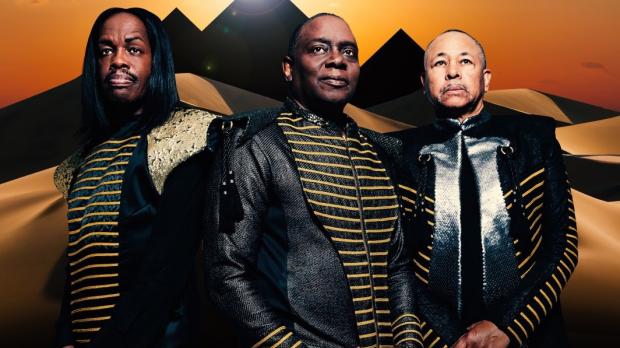Events
Interview: Earth Wind and Fire
[FUNK] It will not be the twenty-first night of September, but rather the eleventh of August when Earth, Wind and Fire’s 2054 Tour with Chic and Nile Rodgers comes to the Key Bank Center. But with a career that’s close to spanning 50 years and a sprawling catalog of 21 studio albums containing over a dozen Top 20 singles, it hardly matters — any night is a fine occasion for a visit from the R&B fusion powerhouse. Founded by the late Maurice White, who’d been a session player at Chess Records and had worked with future EWF-collaborator Ramsey Lewis in his famed Trio, the original demos the group recorded featured fellow Chicagoan Donny Hathaway who, curiously, never ended up on any of their official recordings. The demos nonetheless landed a contract with Warner Brothers, who released the first two EWF albums in 1971 and 1972. That pair of recordings has a decidedly different feel than the blockbuster albums they later recorded for Columbia, which is something we spoke about with fellow founding member Verdine White, 66, a legendary bassist and Maurice’s brother, on a recent call from a tour stop in his hometown. White still plays with EWF, as do vocalist Phillip Bailey and drummer Ralph Johnson (both joined in 1972) as the core elder-trio of the current touring lineup. Joining them this summer is Nile Rodgers, enjoying a huge profile boost due to the success of his recent collaboration with Daft Punk, and his disco-funk mavens, Chic. If you’ve any sweet-tooth for classic R&B at all, this is a double bill that simply can’t lose, Friday, August 11 at 8pm.
Is it still nostalgic for you, being back in Chicago?
Oh yes, very much so. It’s still exciting to see old friends, visit landmarks that were special to us… this is where the dreaming began.
How did this tour with Nile and Chic come about? I’ve heard there’s a special seating configuration to allow for dancing.
We’ve known Nile for years, and we performed at his festival last fall. It came out so well, we decided to expand on it and so here we are. It came on fast, it wasn’t something we’d been thinking about for years, but was actually pretty spontaneous. Phillip Bailey spoke with the promoters and we decided to make the seating more roomy so people have a chance to dance. That was his idea.
Going back to the first 2 EWF records – it was a very different thing. Some of the philosophical underpinnings were already present, but the sound was much more earth—less wind and fire. What shifted?
I think just kinda grew. If you listen to our output from 1970-1979, I’ve always thought it was — for us, anyway — an incredible body of work with a tremendous amount of vision, which came from Maurice. The first two records were just more urban and had a more specific Chicago sound. We’d already moved to the west coast, but it took a while for the sound to catch up. We were evolving. As you record and tour, things evolve. There was a whole new thing coming on, a tremendous amount of movement in music at that time, which gave us a great deal of freedom. And Maurice had been involved in jazz from the beginning.
Listening to music that charted in the 1970’s, and yours is a great example, I’m struck by how wide open the hit radio format became — significantly more diverse than what makes it onto the radio today, which seems odd… backwards. Why do you think that is?
Well, radio was less genre-specific then, I think. People were less hung up on having to say it’s one thing or another – it all sorta fell into the realm of popular music and AM stations played whatever was in the charts. Back then you could have an R&B tune and a pop tune and a jazzy tune all in the same format, more variety on one station. It was a very fluid time.
And as far as the band’s spiritual foundation, where did that cone in? There seems to be a set of spiritual principles at the root.
That was really a pace set by Maurice, his interest in Egypt and metaphysical things… it was already present in the name of the band, but when we relocated to the west coast, that too really blossomed. Maurice was a seeker, always searching, always growing.
What are you most proud of, looking back?
Ten years ago I’d have said it was one specific thing, but now with greater perspective, I’m just proud of whole body of work. People still love this music, it’s in commercials, on TV shows, in the movies, you can stream it… we’ve gone from 8 track to the digital age, and remain part of everyday life. Folks tells us our music has been a soundtrack for them, and it’s a privilege to be so deeply entrenched in the fabric of people’s consciousness.
$36-$121
When:
We're sorry, this event has already taken place!


COMMENTS